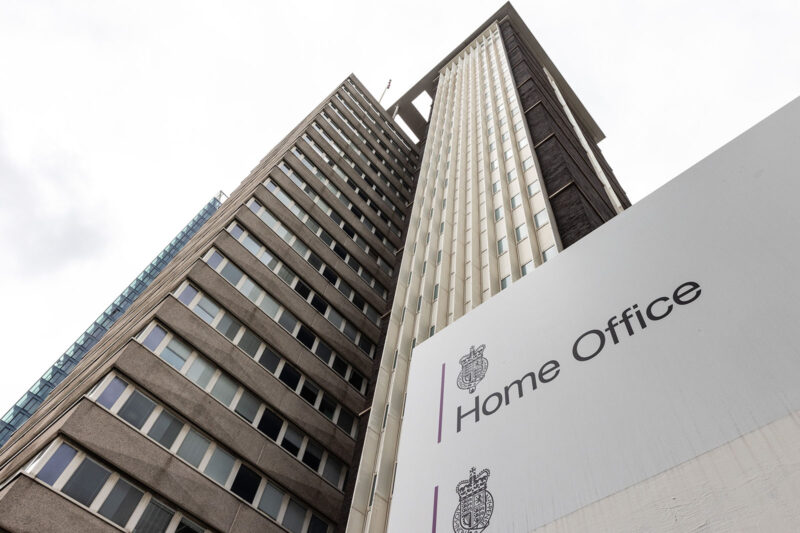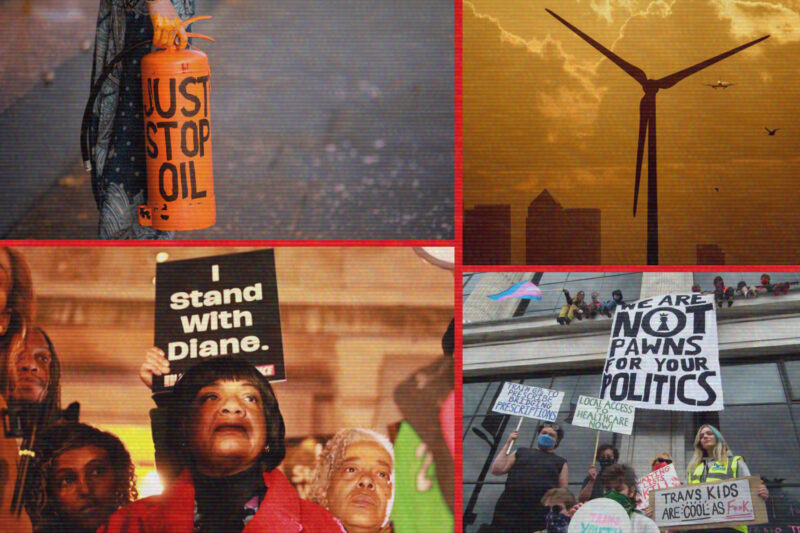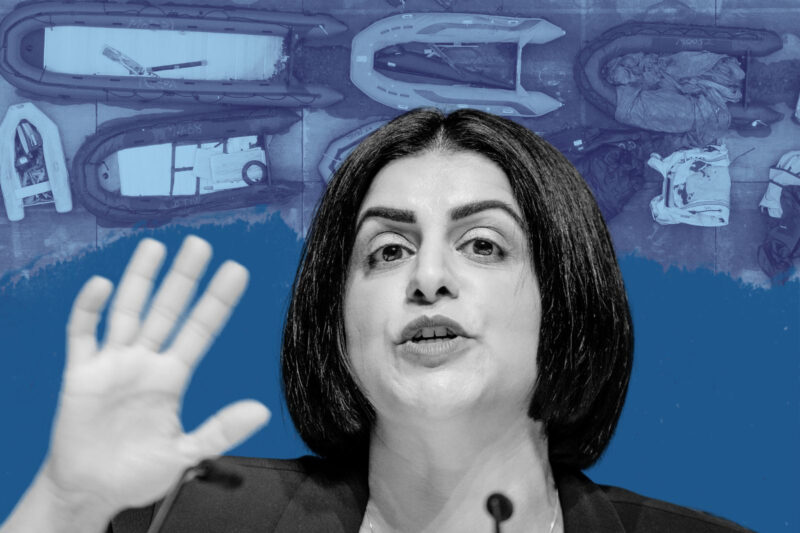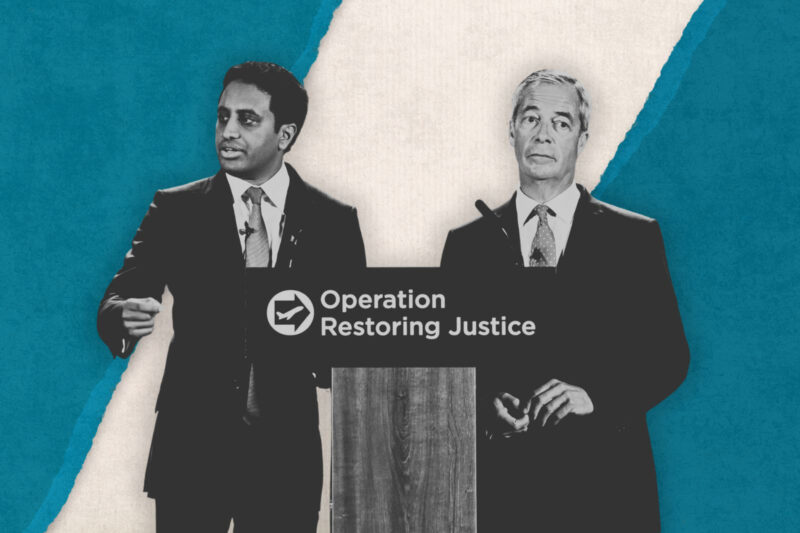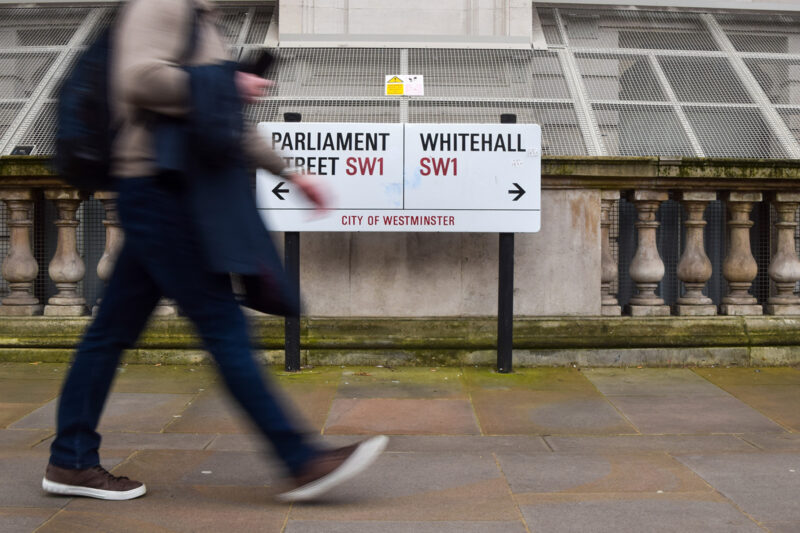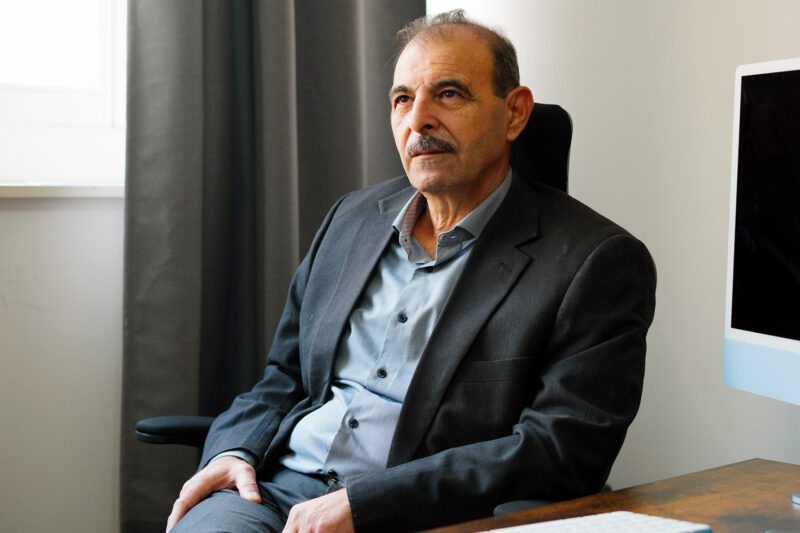‘I’m starving, I’m scared’: the refugees forced from asylum hotels onto the streets
The government’s drive to ‘clear the backlog’ left thousands of vulnerable people homeless. Six months after the policy was reversed, little has changed.
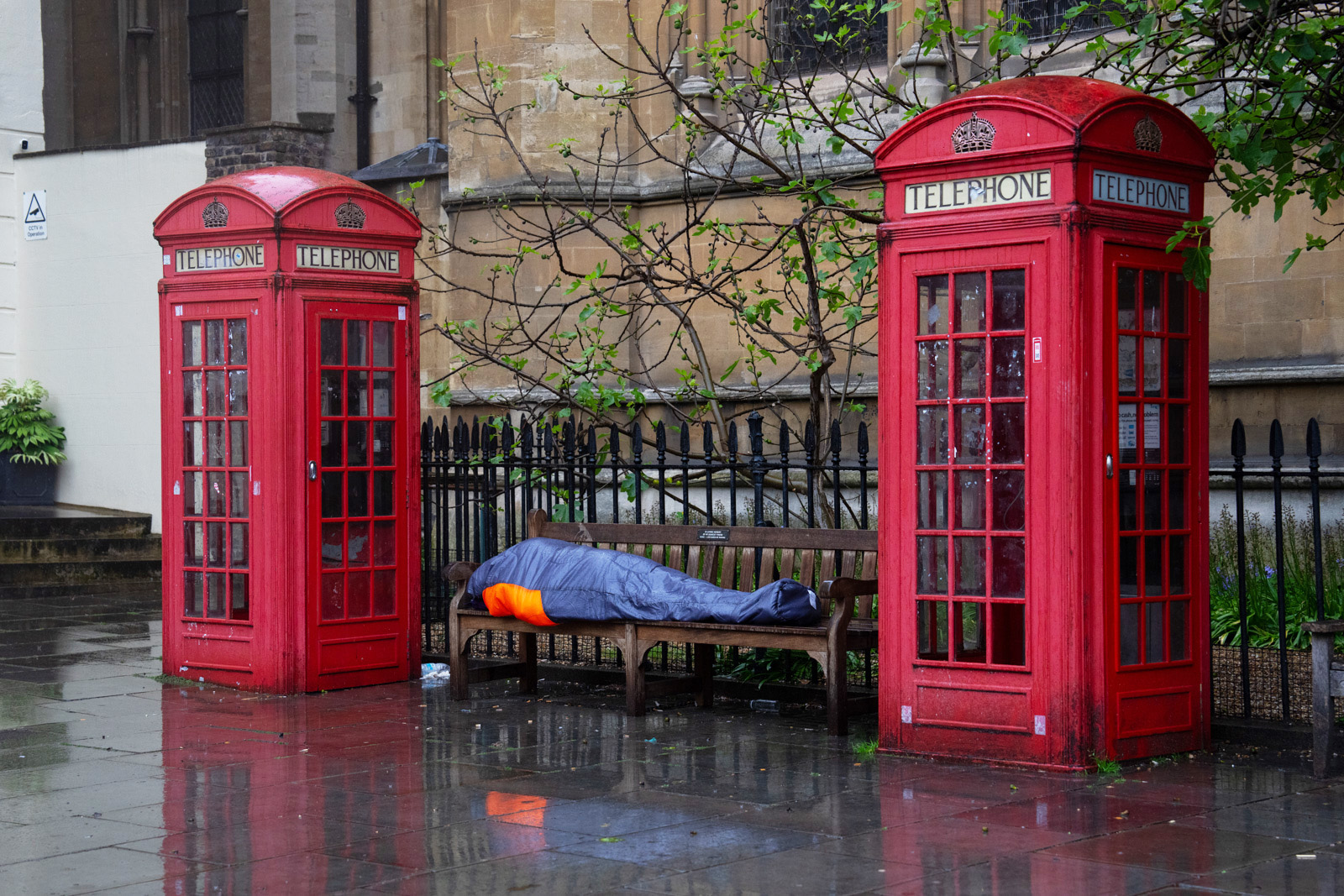
When Ali* finally received his refugee status in the UK, he didn’t think it would leave him homeless. Originally from Saudi Arabia, Ali, who is transgender, sought asylum in the UK two years ago after fleeing from familial abuse and the kingdom’s notorious anti-LGBTQ+ laws. He hoped to find safety and acceptance on British soil. Yet he is now living on the streets of south London after being forced to leave his asylum hotel without sufficient support or time to find alternative accommodation.
“If I was lucky, I would stay with my friends, but most of them are asylum seekers and they’re not allowed to have visitors to sleep over,” he said. Ali received his refugee permit in November last year, but with the winter coming and no alternative housing to go to, he was told he could stay in his asylum accommodation until February.
Ali is one of the thousands of refugees who have ended up homeless across the UK. After their asylum claim is granted, refugees have 28 days to leave their accommodation, which start when they receive their biometric residence permit. This identity document allows refugees to demonstrate their right to work, to rent accommodation and to access financial services and benefits such as universal credit or a refugee integration loan. However, many of these benefit claims take longer than 28 days to process.
“You’ve been languishing in this asylum system, institutionalised — 28 days is just not long enough to provide a buffer zone,” said Colm McDonald, who works at the Colchester-based charity Refugee, Asylum Seeker & Migrant Action. “Whatever support you get [while waiting for a decision], however meagre, at least you get housing. However poor it is, at least you get financial subsistence payment per week.”
He added that asylum seekers aren’t responsible for paying bills or handling applications, which makes it difficult to integrate into the “real world”. Having come from a different country, they are also not familiar with the UK systems. “The Home Office is essentially saying, ‘We’re done now, it’s up to someone else to pick up the pieces’,” McDonald said.
A spokesperson for the Home Office said: “We are working to make sure individuals have the support they need following an asylum decision, and to help local authorities better plan as we reduce the number of asylum seekers awaiting a decision. Support is also available through [the charity] Migrant Help and their partners, which includes advice on how to access universal credit, the labour market and where to get assistance with housing.”
In August last year, in a drive to “clear the backlog” of asylum applications, the Home Office changed the rules so that refugees would be given 28 days’ notice from the moment their asylum claim was granted in which to leave their accommodation, not 28 days from the moment they received their biometric residence permit as before. Refugee and homelessness organisations widely denounced the move for limiting the time refugees had to move on to a new home and access mainstream benefits, directly causing a sharp rise in homelessness.
According to data analysed by the Refugee Council in April, there has been a 239% increase in homelessness among asylum seekers evicted from Home Office accommodation in just two years. Though the Home Office quietly reversed the policy in December 2023, its repercussions continue to be felt today as asylum hotels close and the move-on period remains too short for refugees to secure housing.
More than 5,000 refugee households were classed as homeless between October and December 2023 in England, which is four times as many as in the same period in 2022. Six months after the policy was reversed, charities and local authorities are frustrated that the Home Office is not stepping up to tackle this rise in homelessness, leaving them to address the issue without support while thousands of vulnerable people remain destitute.
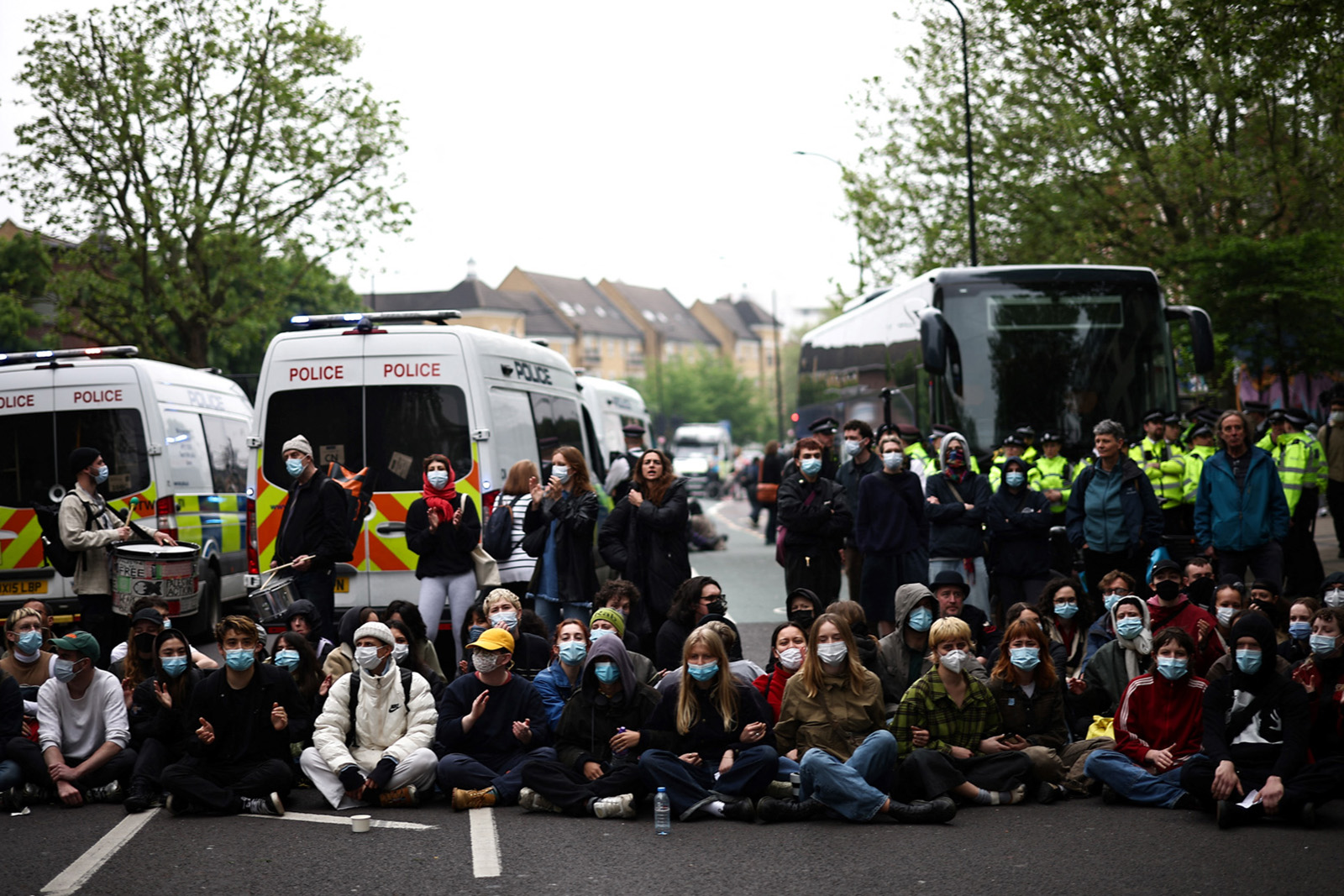
Homelessness among refugees is a multifaceted issue, but can be at least partly attributed to recent changes in government policy. In December 2022 the government pledged to process all “legacy” asylum applications made before 28 June 2022 by the end of the following year. It was presented as a “pivotal step” in a wider promise to “stop the boats”. The prime minister, Rishi Sunak, said in January this year: “By clearing the legacy asylum backlog, deciding more than 112,000 cases, we are saving the taxpayer millions of pounds in expensive hotel costs, reducing strain on public services and ensuring the most vulnerable receive the right support.”
Yet claims that the government successfully cleared this backlog were widely criticised, as 4,500 legacy cases remained unresolved by the December 2023 deadline.
The Home Office continues to close asylum seeker hotels as part of the same plan to deter people from seeking asylum in the UK. In March, it celebrated the closure of its 100th hotel since September 2023. However, the number of asylum seekers hasn’t reduced, as more people are being squeezed into the remaining hotels and having to share rooms.
The rise in refugee homelessness has been described by the Refugee Council as “unprecedented” and a “moment of significant crisis” within the sector. “The process refugees go through when granted status is setting them up to fail from the very start,” Enver Solomon, the organisation’s chief executive, said.
In addition to a lack of emergency housing and hostile environment policies that prevent asylum seekers from working, an automatic 35-day wait to receive the first universal credit payment is incompatible with the 28 days afforded to newly recognised refugees. The same can be said for the Homelessness Reduction Act 2017, under which local authorities are given a 56-day period to work with households at risk of homelessness.
“There have been calls for extending the 28-day notice period to 56 days, so that people’s benefits can start to come in, they’ll be able to start work and save their month’s deposit,” said Carly Whyborn, interim director of the UK charity Refugees at Home. In purely economic terms, a 2020 report concludes that giving refugees four additional weeks of support by extending the move-on period to 56 days could save the government between £4m and £7m a year, as local authorities, the NHS, charities and other public bodies inevitably pick up the considerable social and economic costs of new refugees becoming destitute.
The UK government is currently spending £2.4bn over a three-year period to tackle homelessness, as part of its promise to end rough sleeping by 2024.
Many of the refugee households being made homeless include children. However, it is predominantly young men who find themselves sleeping rough for extended periods as they are often placed at the bottom of the housing priority list. Current housing legislation stipulates that councils must first give emergency housing to people who are pregnant or with children, facing domestic abuse, aged 18-20 and who were in care, with health issues or a disability, or who are vulnerable owing to being older.
Ali, who is in his mid-20s, has been told by authorities that he is facing homelessness as an “ordinary person” and therefore does not meet the priority criteria. “I came from struggle. I was facing a lot back home and I’ve faced a lot here,” he reflected. “Then to be told that I’m not a ‘priority’ every time I seek help is a disappointment. Although he said he knows the UK is better than Saudi Arabia in terms of personal freedom, “in these circumstances, you begin to notice the common things between your home country and whatever country you came to.”
Homelessness has had a real impact on his mental health. “I have anxiety and I really struggle to push myself,” he said. “Even though I live in the street, I try to have showers at church, but I have an anxious mind, a depressed mind. I don’t want people to see me in that way.”
When we spoke, he was entering his fourth month of homelessness on the streets of south London. With no permanent accommodation in sight for Ali, his lawyer said he needs to provide more evidence of his mental health issues to the local council. “I’m not sure what other evidence I need… I tried to commit suicide a long time ago,” Ali said. “Since being made homeless, I’ve self-harmed, I started to smoke. I stopped studying. I feel like I don’t know what I’m doing in my life. I’m tired and depressed.”
According to the homelessness charity Crisis, 45% of people experiencing homelessness have been diagnosed with a mental health issue. This rises to eight out of 10 people who are sleeping rough.
Saeed, a 26-year-old from Yemen, who asked to use his first name only, also experienced homelessness when receiving refugee status. “You don’t expect that the government that hosts you is going to kick you out of the hotel,” he said. Saeed had fled Yemen in the midst of its violent civil war in 2019. “I was very scared,” he said. “I saw everyone carrying guns… broken buildings.” In November 2023, Saeed received a letter from the Home Office confirming his refugee status after waiting for two years and two months.
Security staff from the residence “just gave me three hours. They told me, ‘You have to leave this accommodation or we’re going to kick you out’. I was afraid of them. At the same time they were taking advantage of the fact that we do not know the law and that we are afraid of losing our residency.” Saeed called a friend who lived in a small house with his family, and asked if he could take care of his belongings while he worked out the next steps. After handing over his stuff, he was left with just a small bag containing a phone charger and his official papers, he slept around Paddington station in a cold November for the next seven days.
“I was freezing. I was scared. I was starving. I was angry,” he said. Without money or support, because he had no time to access any of the benefits he was now entitled to, Saeed contacted Refugees at Home, which connects those with a spare room to refugees and asylum seekers in need of somewhere to stay.
Saeed was housed shortly afterwards and has been in his accommodation for six months. “It wasn’t my dream to live in a house like this,” he said, describing his shock at being in such a nice home with his host. “I’m so lucky, to be honest.” During these six months, he has been able to find work in construction and save up money, and is now about to move into private accommodation of his own. He is also an enthusiastic videographer, so he hopes to build up his portfolio on the side and get back to working the job he loved back home.
The rise in refugee homelessness appears to be an unavoidable consequence of a hostile environment designed to deter asylum seekers from coming to the UK. However, once these individuals reach British shores, the systems in place only cause further suffering. “Asylum seekers want to work because people want to live independent lives,” said Whyborn. “Having gone through so much trauma and the indignity of the asylum process, they want to contribute and just live their lives. It’s not very much to ask.”
*Some names have been changed to protect anonymity.
In the UK or Ireland, Samaritans can be contacted by phone on 116 123, a free service. You can find other ways of contacting Samaritans here.
 Newsletter
Newsletter


